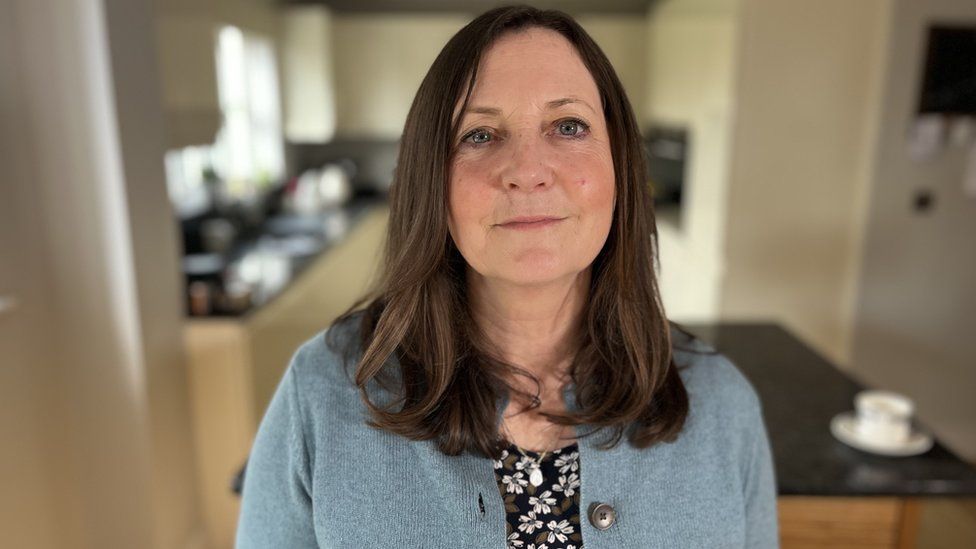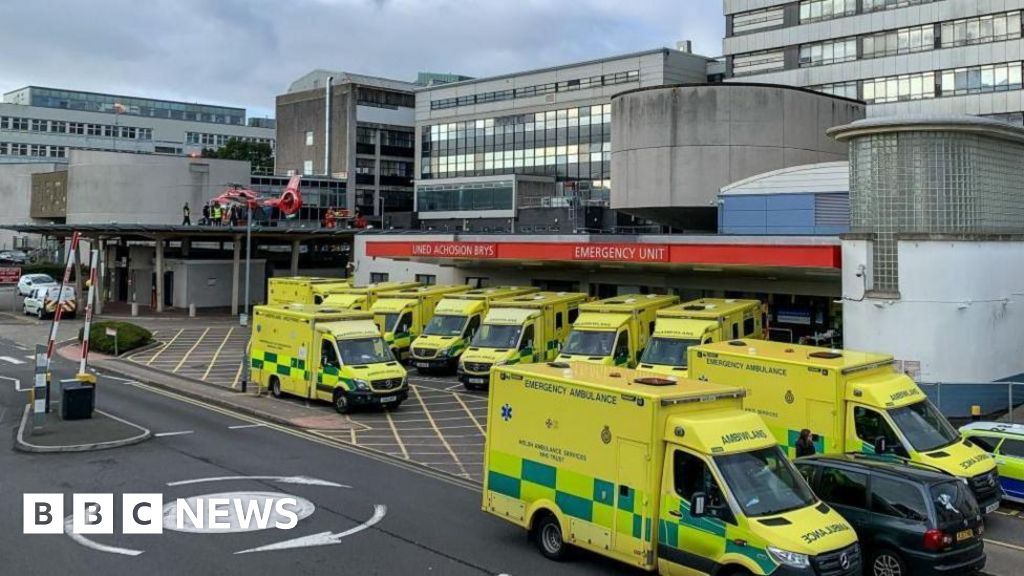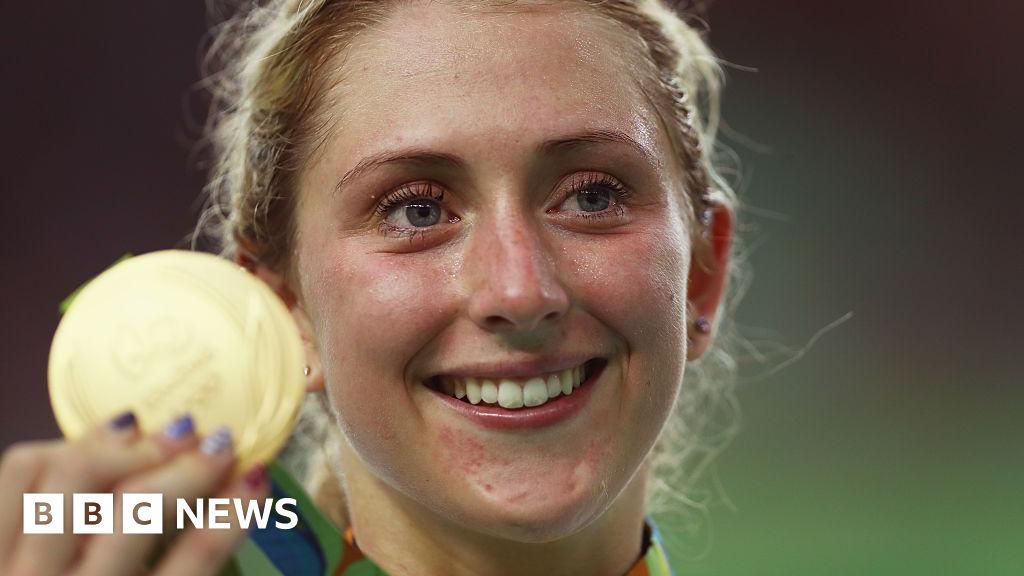 Image source, Qays Najm/BBC
Image source, Qays Najm/BBC
Cancer patient Tina Bean, who worked as a nurse for 35 years, is devastated by the delays in her diagnosis and treatment
Cancer patients are "being let down" and some are at risk of dying because they are not being treated on time, senior doctors have warned.
Oncologist Professor Pat Price, head of the charity Radiotherapy UK, said cancer care in the UK was "in crisis".
A former nurse said the five-month wait for her cancer treatment to start had been "horrific".
A Department of Health and Social Care spokesperson said cutting waiting lists was one of the government's priorities.
Cancer waiting times for 2023 in England were the worst on record, BBC News analysis revealed last month.
In December, only 65.9% of cancer patients in England started their first treatment on time, within 62 days of an urgent referral. The target is 85% and was last met in 2015.
Image source, Tina Bean
Image caption,Tina worked throughout the whole pandemic, mainly in child immunisation and on a cervical treatment programme
Tina Bean, 55, from Stebbing in Essex, had to wait 158 days for her treatment for stage three bowel cancer, which has spread to her pelvic lymph nodes.
The former nurse, who worked for the NHS for 35 years, had an urgent referral to Broomfield Hospital in Chelmsford in September last year after going to see her GP.
But she had to wait 80 days after seeing her GP before she received her diagnosis.
"I thought everything must be fine because I hadn't heard anything for so long, so I went on my own to the appointment. My whole world turned upside down," she said.
Image source, Tina Bean
Image caption,Tina did not have many cancer symptoms but felt something was not quite right so she went to see her GP
Mrs Bean only started daily radiotherapy and chemotherapy last month at Southend hospital.
"The waiting has been horrific. I have tried to keep positive and the treatment I am now getting is the best possible treatment but I know the delay can have a negative impact on your survival rate.
"All I have wanted since I have known about the cancer is to get it out of me. I just thought 'please give me the treatment'."
"I am so fortunate I have such a great support network but some people don't have that. There are thousands of other people like me, waiting for huge lengths of time."
Image source, Tina Bean
Image caption,Tina said she could not have got through this period of her life without the support of her husband Tony and wider family and friends
Having treated hundreds of cancer patients during her career, Mrs Bean now feels "let down" by the service she dedicated her life to.
"As a nurse I wanted to do the best for my patients. Everyone I have seen wants to do their best for me but they're being prevented from doing that."
Mrs Bean is being treated by the Mid and South Essex NHS Foundation Trust, which treated just 46.9% of patients on time in December, making it among the worst performing in England for that target.
Andrew Pike, chief operating officer at the trust, said: "We are very sorry to hear of Mrs Bean's experience. This is being investigated and the hospital will contact Mrs Bean to resolve and address any concerns."
Prof Price, who co-founded a campaign called Catch Up With Cancer, said 225,000 cancer patients had waited too long for their treatment since 2020.
"Some cancer patients are not being kept safe and that is not acceptable," she said.
Prof Price founded a campaign called Catch Up To Cancer which aims to raise awareness of the thousands of patients with treatment delays
She said she had heard anecdotally of people who had waited for more than a year for treatment.
"The situation is very bad and it's so distressing for patients. The most important thing is to start treatment on time which is why we have the 62 day target.
"It is really serious because for every four week delay in treatment, there can be up to a 10% increase in deaths, so it is putting patients at risk.
"Cancer patients are being completely let down. We are a modern country, we have got treatments that can cure people and we are just not treating people on time.
"Cancer is increasing by 2% a year - if we are not coping now, how on earth are we going to cope in the future?"
Chart showing 62-day cancer waits
Prof Price said the government needed to "reprioritise cancer" and produce a designated cancer plan, with the help of experts, to "get a grip" on the crisis.
Leandre Archer, from the Society of Radiographers, said the situation was "profoundly depressing", with radiography departments often treating patients at 120% capacity, with waiting lists continually growing.
"We're hearing of departments that end up turning off some of their radiotherapy machines because there are not enough therapeutic radiographers to deliver patient care," she said.
"Long waiting times mean that cases become more complex and for some patients, even a two-week delay can mean the difference between life and death."
Cancer Research UK's chief executive, Michelle Mitchell, said thousands of patients were facing unacceptable waits to be diagnosed and treated.
"The UK government must take urgent action and provide additional investment for the NHS, coupled with reform to cancer services, so that cancer patients receive the level of care that they deserve."
A Department of Health and Social Care spokesperson said there were record numbers of urgent cancer referrals last year and record numbers of patients received a cancer diagnosis or all-clear within four weeks.
"Survival rates are improving across almost all types of cancer and we will shortly legislate to create the first smokefree generation - the biggest single public health intervention in decades."
Follow East of England news on Facebook, Instagram and X. Got a story? Email eastofenglandnews@bbc.co.uk or WhatsApp 0800 169 1830
 (1).png)
 9 months ago
14
9 months ago
14













